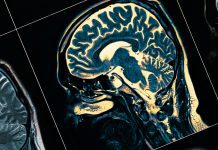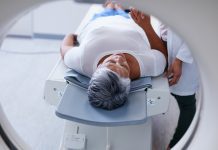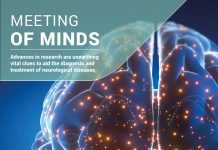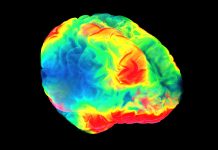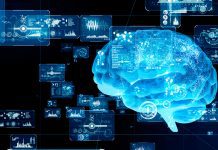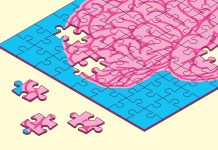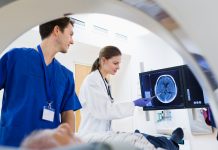Alzheimer’s Disease Related News
Can erectile dysfunction pills reduce the risk of Alzheimer’s disease?
New research from University College London suggests that men who take erectile dysfunction pills may have a reduced risk of developing Alzheimer's disease.
Although it...
A new blood test can track neurodegeneration in Alzheimer’s disease
A new blood test has been developed that can track and follow neurodegeneration in Alzheimer's disease patients.
The new blood test, which can exclude other dementias,...
Can managing emotions prevent neurodegenerative diseases?
Researchers from the University of Geneva (UNIGE) have suggested that managing emotions can help limit neurodegeneration and pathological ageing.
The researchers studied brain activity in...
Cardiometabolic disease could increase the risk of dementia
Being affected by cardiometabolic disease such as diabetes, heart disease and stroke, has been linked to an increased risk of dementia and Alzheimer’s disease.
A...
New Alzheimer’s drug Lecanemab shows promising results in trial
A new clinical trial for lecanemab reveals positive results for the future of Alzheimer’s disease treatment.
Study results presented at the 15th Clinical Trials on Alzheimer’s...
Researchers discover new target for Alzheimer’s treatment
An international study involving University of Liverpool researchers has found a new potential target for Alzheimer’s treatment.
New research shows that medin, a protein, is...
New hope for treatment to slow neurodegenerative disease
Scientists have discovered a new drug treatment that could slow neurodegenerative disease, offering fresh hope.
The new study featuring researchers from the University of Glasgow’s...
Researchers develop new MRI Alzheimer’s test
An exciting MRI Alzheimer’s test by the University of Aberdeen will be trialled for the first time, providing new hope to patients.
A newly developed...
Meeting of minds: Advancing research into neurological disease diagnosis and treatment
In this insightful eBook about innovation in neurological diseases, NervGen joins forces with Jean-Charles Lambert, PhD, from Institut Pasteur de Lille, INSERM and Professor...
Understanding the early stages of Alzheimer’s with 3D imaging
Researchers at Karolinska Institutet in Sweden are using novel 3D imaging technology to better understand the early stages of Alzheimer’s disease.
Using new 3D imaging...
A new peptide nasal spray can reduce the risk of seizures
Scientists have developed a new peptide nasal spray that can help prevent seizures and reduce the risk of Alzheimer’s and epilepsy. The A1R-CT peptide...
Drinking seven units of alcohol per week may cause cognitive decline
Emerging research from the University of Oxford suggests that consuming more than seven units of alcohol per week could increase your risk of experiencing...
Diagnosing dementia automatically with machine learning
Boston University researchers have pioneered an automated machine learning-powered tool for diagnosing dementia and Alzheimer’s disease.
Diagnosing dementia is currently an expensive and labour-intensive process,...
Common ADHD medications may treat Alzheimer’s disease
An extensive data analysis has revealed that widely used ADHD medications may be effective at reducing the impact of Alzheimer’s disease.
The investigation examined the...
Debunking myths about diet and dementia with enhanced clinical trials
The Nutrition for Dementia Prevention Working Group has recommended that clinical trials surrounding diet and dementia are vital.
Is there a link between diet and...
A newly discovered gene may cause Alzheimer’s disease in women
A team of US researchers have uncovered a new gene – known as MGMT – that may increase the risk of Alzheimer's disease in...
International study identifies new risk genes for Alzheimer’s disease
Professor Jean-Charles Lambert, who spearheaded the most extensive ever genome-wide association study for Alzheimer's disease, outlines how the project has discovered 75 risk genes...
Single brain scan revolutionises early Alzheimer’s diagnosis
An early-stage Alzheimer’s diagnosis is typically difficult to identify, but new machine learning technology could change this.
There is no cure for Alzheimer’s disease, amplifying...
Alzheimer’s disease: is plasticity science’s big breakthrough?
NervGen is developing a novel drug candidate that could revolutionise treatment for conditions associated with central nervous system damage, including Alzheimer’s disease.
It promises to...
Seven healthy habits that may boost dementia prevention
New research has identified that seven healthy habits and lifestyle factors may provide effective dementia prevention, even among people with the highest genetic risk...






